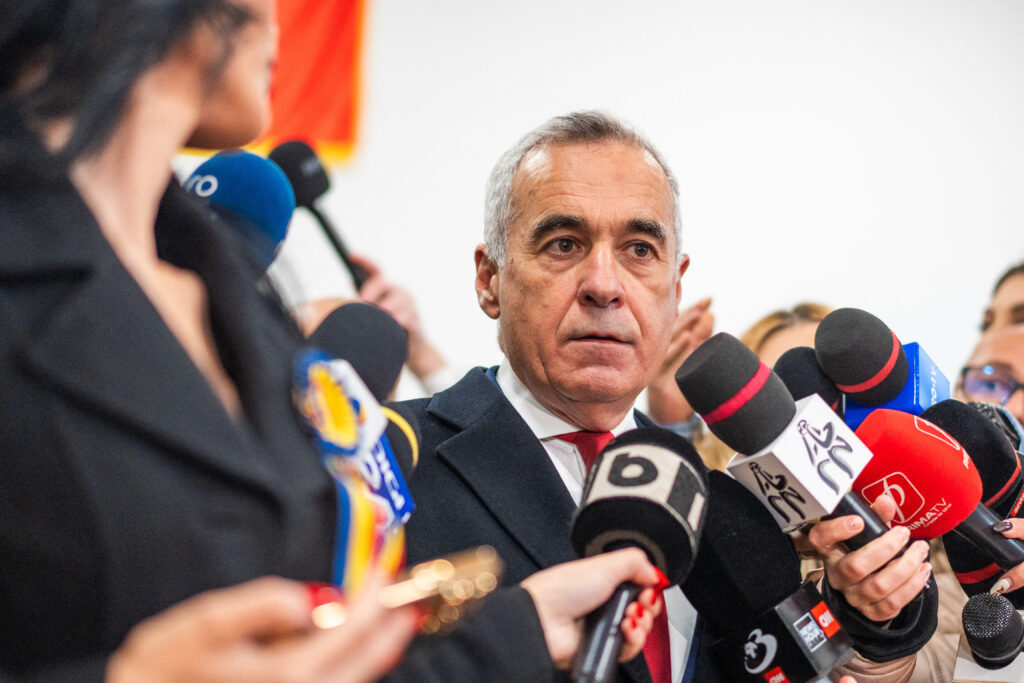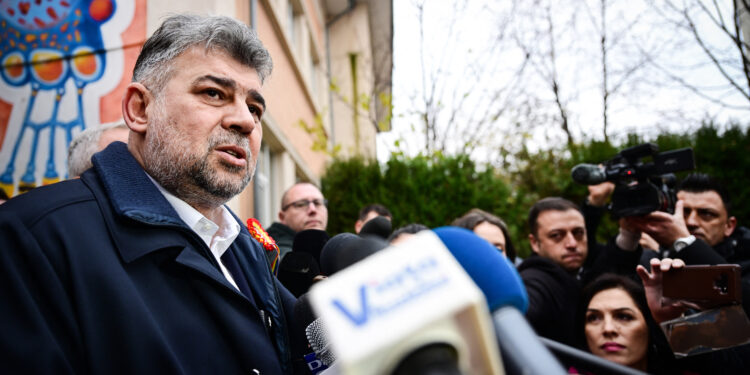Brussels – Romania’s president is seeking a way out of the political chaos in which the country seems to be embroiled. After the Constitutional Court resoundingly annulled the first round of presidential elections three weeks ago, the head of state Klaus Iohannis today (Dec. 23) instructed the outgoing prime minister, Social Democrat Marcel Ciolacu, to form a new executive following the legislative elections held earlier this month.
Romanian politics is in turmoil after, within a month, voters have signalled that they are tired of business as usual, of the mainstream parties that have led Bucharest in recent years, and perhaps also of the international positioning of the Balkan country.
In the first round of the presidential elections, held last Nov. 24, the ultranationalist and pro-Russian independent candidate Călin Georgescu had surprised everyone by taking the lead, undermining incumbent premier Marcel Ciolacu of the Social Democratic Party (PSD) and ending up in the runoff with the leader of the liberal opposition USR party, Elena Lasconi.
However, the Romanian Constitutional Court annulled that vote on Dec. 6, citing Russian interference in the electoral process (facilitated, it seems, by TikTok). This set a precedent in Western political history and invalidated Georgescu’s run for the presidency of the Republic, which will now have to start over, probably not until next spring.

In between, on Dec. 1, Romanians had gone back to the polls to renew parliament and government. In that round of elections, the PSD had remained the leading force in the House with 22.4 per cent of the vote, but the pro-Russian far-right forces had reached 31 per cent. The Alliance for the Unity of Romanians (AUR) pulled the sprint, the party led by George Simion in which Georgescu himself briefly militated, which came second in the legislature with 17.8 per cent.
At that point, Lasconi had appealed to the other pro-EU forces—the PSD and the latter’s current governing partner, the National Liberal Party (NLP), as well as its own USR—to form a coalition executive that would exclude the nationalist ultra-right from power, so as not to jeopardize Bucharest’s international standing.
An appeal to which Ciolacu did not respond enthusiastically at the time but which was essentially reiterated today (Dec. 23) by the outgoing President of the Republic, Klaus Iohannis, who instructed the leader of the PSD (who has been premier since June 2023) to put himself at the helm of a new broad accord government that would uncompromisingly support the EU and maintain no ambiguity on support for Ukraine.
The UDMR, the party that represents the Hungarian minority in Romania and was already part of the current government until it pulled out last year following disagreements with its allies, is also expected to participate in this executive. PSD, NLP and UDMR have agreed on a common candidate for the presidential elections, for the rerun of which there is still no official date.
“This will not be an easy mandate for the future government,” Ciolacu said Monday. “We are aware that we are in the midst of a deep political crisis. It is also a crisis of confidence,” he said, adding that “this coalition aims to gain the trust of the citizens, the trust of the people.” Ciolacu’s nomination will now have to be approved by the bicameral parliament in Bucharest, while negotiations between the parties are expected to be anything but easy.
English version by the Translation Service of Withub







